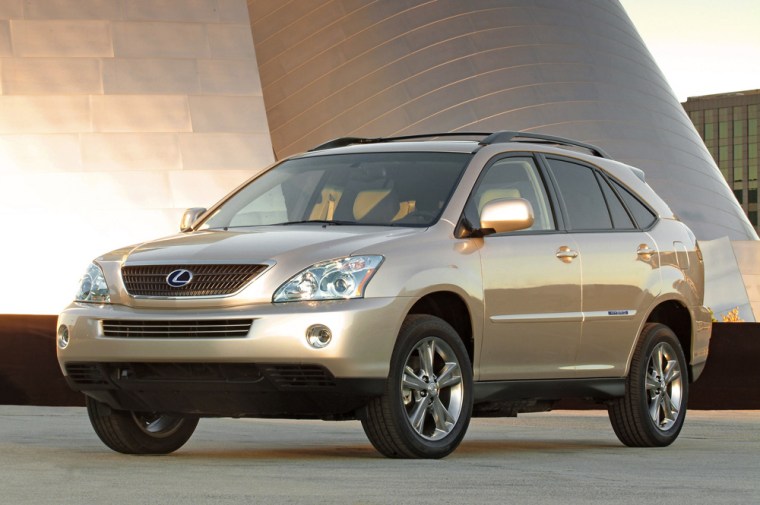Desirable cars and fairly respectable gas mileage are not mutually exclusive.
A list of the most fuel-efficient luxury-brand models includes some impeccably prestigious, comfortable, and well-performing cars, such as the hybrid Lexus RX 400h, the diesel-powered Mercedes-Benz E320 Bluetec, and even the Porsche Cayman, as unlikely as that may seem for such a high-performance brand.
Not that shoppers for luxury-brand vehicles appear to be terribly concerned about gas mileage—even as oil topped a record $80 per barrel this month.
"Fuel economy is not becoming significantly important over previous years," said Alexander Edwards, president of San Diego-based research company Strategic Vision, after he reviewed the firm's last seven years' worth of car buyer surveys, a total of more than 50,000.
Edwards said buyers in general, and luxury buyers in particular, continue to be much more concerned with factors such as the manufacturer's reputation or whether a vehicle is well made and fun to drive. Fuel economy is far down the list.
When asked which single reason was the most important for purchase, the highest fuel economy has been ranked in the last seven years was No. 19, in 2001. For the 2007 survey, it was No. 30 out of 47.
Pockets of concern
Naturally, buyers of some specific models, such as the hybrid Lexus RX 400h SUV, do cite fuel economy as an "extremely important" reason for purchase. The RX 400h is powered by a six-cylinder, 3.3-liter, internal combustion engine teamed up with two electric motors.
According to Strategic Vision, 67% of RX 400h customers said gas mileage was an "extremely important" reason for purchase.
That was the highest such response for any luxury model, but the RX 400h was the only luxury model for which a majority of the people who bought it cited fuel economy as "extremely important," the Strategic Vision research said.
Separately, Danbury, Conn.-based research firm DYG showed that 83% of a sample of luxury-car shoppers claimed they would "seriously consider" a hybrid vehicle.
However, that professed willingness has been slow to convert into sales.
Not easy being green
In the non-luxury segment, Toyota is having great success with the hybrid-powered Toyota Prius. Toyota has sold more than 400,000 units of the Prius since 2000 — mostly in the last three years, since a redesign made it bigger and more practical.
But luxury-brand hybrids are a much smaller phenomenon. For instance, Lexus has sold just 9,652 hybrid RX models this year through August, down about 31% vs. the year-ago period.
Meanwhile, diesels such as Mercedes-Benz's E320 Bluetec are handicapped by the fact California, New York, Massachusetts, Maine, and Vermont won't register new diesels in those states, because they have tougher emissions regulations than the federal standards. Next year, Mercedes-Benz plans to offer so-called 50-state diesels.
The diesel-powered Benz gets an outstanding 27 mpg in combined city/highway driving, according to Vincentric of Bloomfield Hills, Mich. Vincentric analyzes the costs of vehicle ownership for fleet buyers, car dealers, and other auto industry customers.
All of the vehicles on our list of most fuel-efficient luxury cars get at least 20 mpg. That may not sound like much, but that's partly because of changes in the way the EPA calculates estimated gas mileage.
A tougher test
Starting with the 2008 model year, the EPA adopted tougher standards for its estimates, to more closely simulate real-world conditions and how people actually drive. For instance, compared with the 2007 model year test, cars undergoing the 2008 model year test accelerate faster and drive at higher speeds; running the air conditioner is factored in; and colder outside temperatures are used. All those elements tend to reduce fuel efficiency.
Therefore, even if nothing else on the car changed from one model year to the next, most 2008 models lost 1 to 3 mpg compared with the 2007 model, because of the different standards. For the purposes of this story, Vincentric re-estimated mpg figures for 2007 models, using the 2008 formula, to allow apples-to-apples comparisons.
